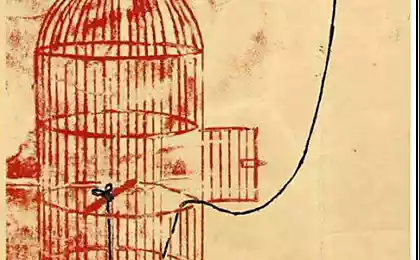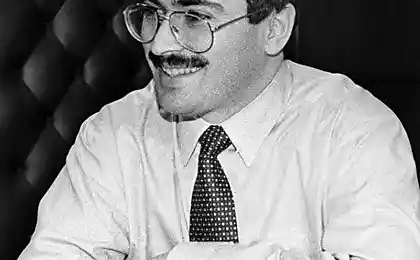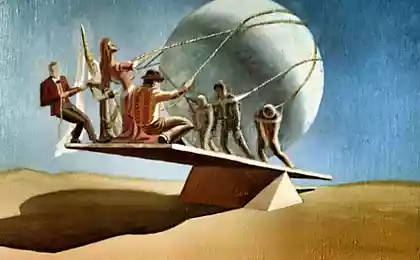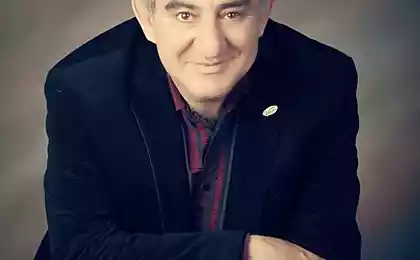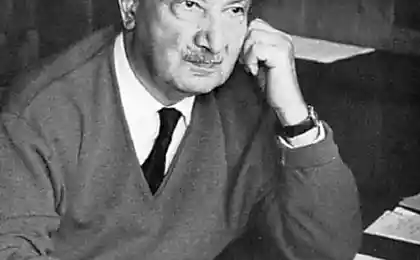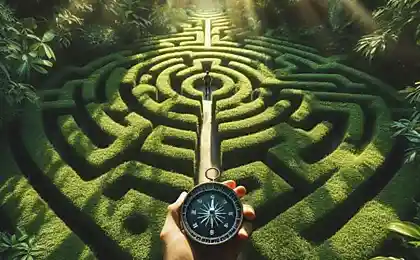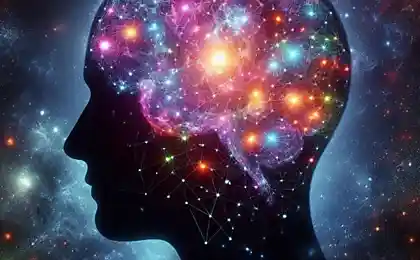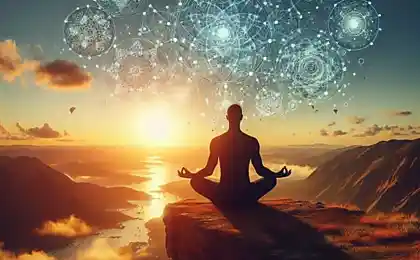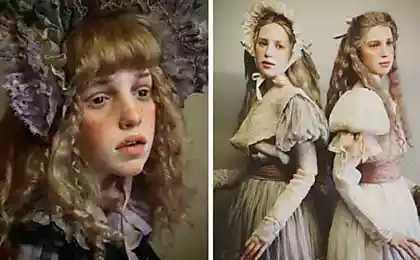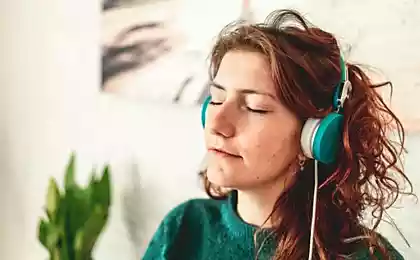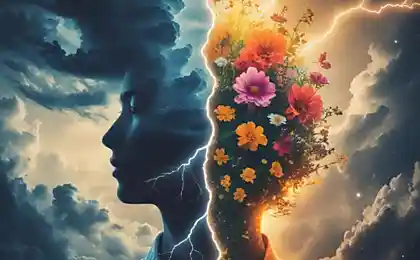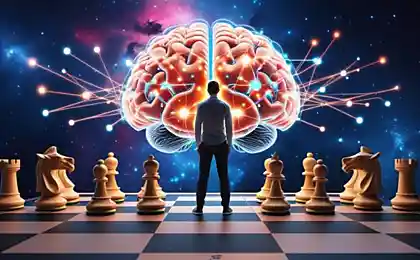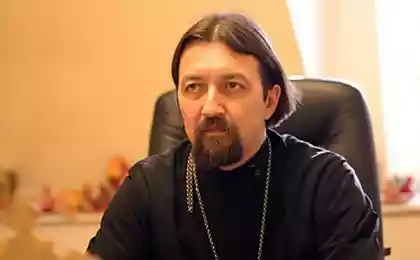399
Mikhail Kazinik: Slave mentality is ill-suited to democracy...
Mass media in the pursuit of profit generates crowd-celled thinkers manipulates consciousness inspires simplistic ideas and concepts. To the sacred rights and opportunities of democracy must be mandatory training and voter education at ohlosa but demos. The demos have always been treated as free men, not slaves. A slave mentality is ill-suited to democracy... ... came Bach and Chopin. Their objective is to divert the savages from primitive primitive concepts – in the arms of spirit. But they went... in ochlocratic view space utterly distorted. Someone will say: "leave them alone! Let the people having fun! But the trouble is that, narzullaevs, the PEOPLE go to vote. And nagolosovat... mob rule. Because democracy can only vote demos. The demos, who once studied in ancient gymnasium. And studied the seven liberal arts. 
SEVEN liberal ARTS (lat. Septem Artes Liberales, then S. S. I.), subjects that formed the basis of ancient (Greco-Roman) and medieval systems of education (see Antiquity and the Middle ages). Included grammar, dialectic (logic), rhetoric, which represented the lowest level, "troutie" knowledge — the Trivium, and arithmetic, geometry, music and astronomy — the highest level of knowledge, "chetvertoye" — kvadrivium. In Ancient Greece, the purpose of education was the attainment of students to the full range of knowledge, ie education have a universal ("encyclopedic"). In the Hellenistic times the teaching of "liberal arts" was supplemented by the practice of interpretation of texts of famous poets, writers and philosophers, as well as the inclusion of information in mathematics and science of nature. The Romans gave the system of "liberal arts" in a more organized manner and extended it by introducing new disciplines. At the turn of antiquity and the middle Ages Boethius was given a detailed theoretical basis and the detailed exposition of the kvadrivium the highest level of S. S. I.; and he also belongs to the Latin term "kvadrivium". In medieval Western Europe, an educated man could be considered the only one who took the course or S. S. I. They studied in secondary schools, more deeply — in the universities "faculties of the arts" that constituted the initial stage of higher education. "Free arts" was dedicated to the pieces are not only outstanding teachers of the middle Ages (Vincent of Beauvais, Hugo of Saint Victor, etc.), but also works of art. Allegorical figures of "liberal arts" — Grammar, Rhetoric, Dialectic, Arithmetic, Music, and renown teachers in these arts depicted on the walls of medieval cathedrals. And music – Pythagorean, space, And rhetoric – it's not "love me like this, ka-ka-I", and communication is not just anywhere, but in the Academy of Plato. And is demos – free citizens, thinkers. The Stoics, the sophists, the cynics, the Cyrenaica, the Hedonists, the Pythagoreans. The emperors, who studied in Plato, Democritus, senators, diskutirovat with Socrates. Still unfree citizens – the people. They don't debate, and "Kaku-is". All, of course, is not so simple. Among the demos meet moral freaks, and among ohlosa caught the minds and talents. In fact, when Plato was sold into slavery, he did not automatically become a people. Those who sentenced Socrates to death, to put it mildly, not the best representatives of the demos. And the times were pagan. But one thing is clear: the right to be a democratic country need to win. To earn that. This is how to defend my doctoral thesis. Lots to read, think, write. To sacrifice the many entertainment in order to focus on the idea. To get to the bottom, to make sense. And then, when there was quadrivium, Trivium, voted, to relax, to have fun. Because no one will take you nor your knowledge, nor wisely elected senators. But what am I?.. But does education, though, even the most high, the right to be called DEMOS? Yes and no...
DEMOS is the unity of ethics and education, aesthetics and logic. It is a balanced work of both hemispheres of the brain. What is needed to create this balance? The priority of Culture over all other aspects of life.
Every person in any case performs its specific function in society. But, regardless of profession, everyone should have the knowing and feeling of a true culture. The ancient (and then medieval) kvadrivium — mathematics and geometry can be replaced, but the music and rhetoric – never. Hence the need of music and poetry (poetry as the highest form of rhetoric).
Music, which for many millennia introduces a person to his cosmic roots, to a continuous sense and the energy of Eternity. And poetry – like ability at the highest level to recognize the WORD. For, in the WORD, as in music, encoded our roots, our connection with the cosmic energy, our Immortality.published
Author: Mikhail Kazinik
P. S. And remember, only by changing their consumption — together we change the world! ©
Join us in Facebook , Vkontakte, Odnoklassniki
Source: kazinik.ru/documents/adlibitum.html

SEVEN liberal ARTS (lat. Septem Artes Liberales, then S. S. I.), subjects that formed the basis of ancient (Greco-Roman) and medieval systems of education (see Antiquity and the Middle ages). Included grammar, dialectic (logic), rhetoric, which represented the lowest level, "troutie" knowledge — the Trivium, and arithmetic, geometry, music and astronomy — the highest level of knowledge, "chetvertoye" — kvadrivium. In Ancient Greece, the purpose of education was the attainment of students to the full range of knowledge, ie education have a universal ("encyclopedic"). In the Hellenistic times the teaching of "liberal arts" was supplemented by the practice of interpretation of texts of famous poets, writers and philosophers, as well as the inclusion of information in mathematics and science of nature. The Romans gave the system of "liberal arts" in a more organized manner and extended it by introducing new disciplines. At the turn of antiquity and the middle Ages Boethius was given a detailed theoretical basis and the detailed exposition of the kvadrivium the highest level of S. S. I.; and he also belongs to the Latin term "kvadrivium". In medieval Western Europe, an educated man could be considered the only one who took the course or S. S. I. They studied in secondary schools, more deeply — in the universities "faculties of the arts" that constituted the initial stage of higher education. "Free arts" was dedicated to the pieces are not only outstanding teachers of the middle Ages (Vincent of Beauvais, Hugo of Saint Victor, etc.), but also works of art. Allegorical figures of "liberal arts" — Grammar, Rhetoric, Dialectic, Arithmetic, Music, and renown teachers in these arts depicted on the walls of medieval cathedrals. And music – Pythagorean, space, And rhetoric – it's not "love me like this, ka-ka-I", and communication is not just anywhere, but in the Academy of Plato. And is demos – free citizens, thinkers. The Stoics, the sophists, the cynics, the Cyrenaica, the Hedonists, the Pythagoreans. The emperors, who studied in Plato, Democritus, senators, diskutirovat with Socrates. Still unfree citizens – the people. They don't debate, and "Kaku-is". All, of course, is not so simple. Among the demos meet moral freaks, and among ohlosa caught the minds and talents. In fact, when Plato was sold into slavery, he did not automatically become a people. Those who sentenced Socrates to death, to put it mildly, not the best representatives of the demos. And the times were pagan. But one thing is clear: the right to be a democratic country need to win. To earn that. This is how to defend my doctoral thesis. Lots to read, think, write. To sacrifice the many entertainment in order to focus on the idea. To get to the bottom, to make sense. And then, when there was quadrivium, Trivium, voted, to relax, to have fun. Because no one will take you nor your knowledge, nor wisely elected senators. But what am I?.. But does education, though, even the most high, the right to be called DEMOS? Yes and no...
DEMOS is the unity of ethics and education, aesthetics and logic. It is a balanced work of both hemispheres of the brain. What is needed to create this balance? The priority of Culture over all other aspects of life.
Every person in any case performs its specific function in society. But, regardless of profession, everyone should have the knowing and feeling of a true culture. The ancient (and then medieval) kvadrivium — mathematics and geometry can be replaced, but the music and rhetoric – never. Hence the need of music and poetry (poetry as the highest form of rhetoric).
Music, which for many millennia introduces a person to his cosmic roots, to a continuous sense and the energy of Eternity. And poetry – like ability at the highest level to recognize the WORD. For, in the WORD, as in music, encoded our roots, our connection with the cosmic energy, our Immortality.published
Author: Mikhail Kazinik
P. S. And remember, only by changing their consumption — together we change the world! ©
Join us in Facebook , Vkontakte, Odnoklassniki
Source: kazinik.ru/documents/adlibitum.html
